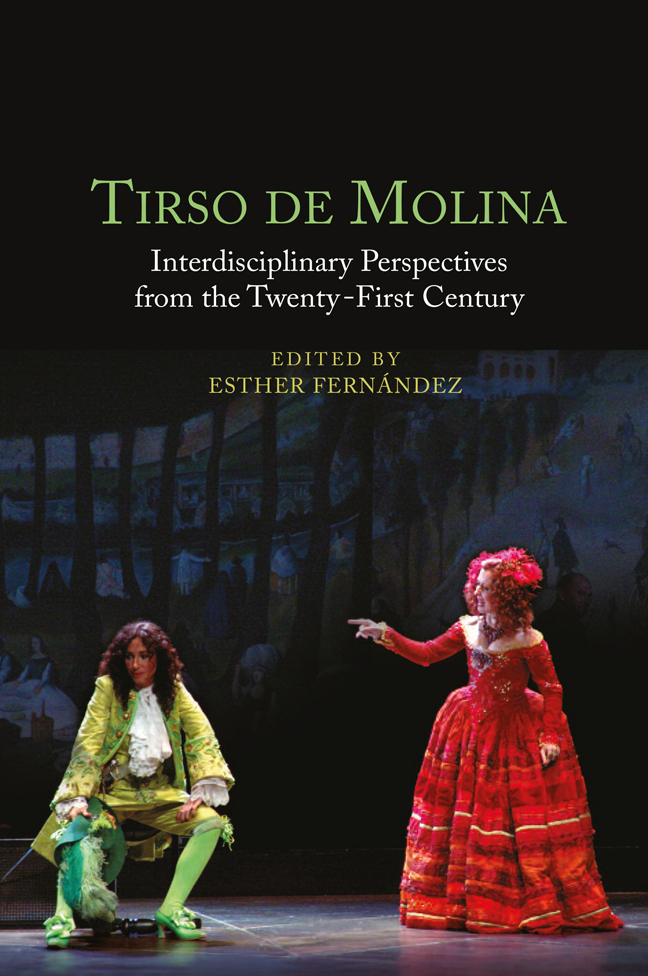4 - The Religious Theater of Fray Gabriel Téllez
Published online by Cambridge University Press: 02 March 2024
Summary
Almost half of the 60 extant plays written by Tirso de Molina refer to religious topics, including autos sacramentales, biblical dramas, and hagiographies. This production does not come as a surprise, as Tirso de Molina was the pseudonym of Fray Gabriel Téllez, a friar belonging to the Order of the Mercedarians, a prominent order in early modern Spain. Nevertheless, attributing this production to his individual circumstances would be a misunderstanding of the zeitgeist of his time. Tirso is not the only religious playwright of the era. Religious influence infused the Spanish dramatic ranks. Some religious men and women merely penned one or two plays to be performed in their monasteries; others—secular playwrights—would fill the Spanish stages with everything related to the Roman Catholic worldview because that was the type of theater that was being requested.
This thematic inclination reflects the importance of religion as a lens through which life was observed in Early Modern Spain, as it was in most of Europe. Religion embodies a very efficient cohesive power, and it is impossible to understand the birth of modern nationhood in the European Renaissance without accounting for the religious factor. The justification for the increasingly centralist European monarchies relied on their divine origin, and the Church’s infrastructure was sufficiently developed to sustain this new national consciousness around which Spanish emperor Charles V also tried to unite Europe through the concept of Universitas Christiana. The secular power started to supplant the Church in its own sphere. Therefore, the Spanish Empire was born tightly sustained by, if not entirely tied around, the Roman Catholic creed as an essential form of identity. This relationship between religion and national identity was also present in other parts of Europe. As one means of escaping this supranational control, other countries developed national faiths and churches, a process which eventually led to religious wars throughout Europe. Martin Luther’s Protestantism became the starting point for Germanic nationalism, and the English Church was baptized as Anglicanism. In this period, Spanish culture fostered Roman Catholic tropes because, first, this effort was a necessary part of the counteroffensive against the Counter-Reformation, but also because it was a less contrived effort of continuation, tradition, and symbiotic growth of national consciousness. These circumstances emphasized the presence of Roman Catholic culture on Spanish stages.
- Type
- Chapter
- Information
- Tirso de MolinaInterdisciplinary Perspectives from the Twenty-First Century, pp. 55 - 70Publisher: Boydell & BrewerPrint publication year: 2023

